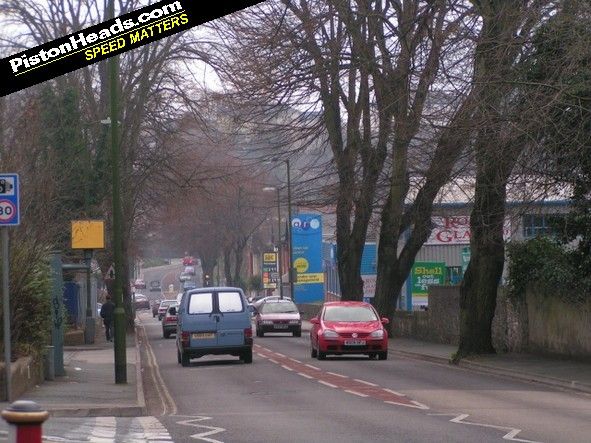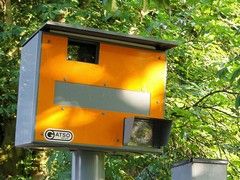Cameras cut death in Scotland, continue in England
Latest figures show significant drop in road deaths in Scotland, while English councils remain keen on cameras despite funding cuts

In the three years to 2010, the number of fatalities on the roads in Scotland was 108, a fall of more than two thirds compared with the 337 people killed in the three years prior to the introduction of speed cameras. The study, undertaken by the Scottish Parliament, also reveals that injuries more than halved over the same periods, with 1,400 recorded injuries dropping to 684.
The number of tickets issued by the cameras has also dropped over the years. While 127,000 fixed penalty notices were issued from cameras in 2005-2006, while in 2010-11 the figure was 73,000
The general opinion in Scotland seems to support cameras, too, with 82 per cent of those taking part in the Scottish Crime and Justice Survey 2010-11 agreeing that people should see the use of safety cameras as a good thing.
Over on the south side of Hadrian's Wall, meanwhile, the RAC Foundation says that English councils are maintaining their commitment to speed cameras despite funding cuts.
Although Oxfordshire Avon & Somerset, Northamptonshire and Wiltshire & Swindon all switched of their cameras in 2010, there are still, according to the RAC Foundation's figures, 2,331 fixed speed camera sites, 3,026 fixed speed camera housings and 487 operational fixed cameras.
Don't think that because there are six times more housings than there are cameras you can avoid getting flashed, however: "Although there are many more housings than cameras, it seems that the cameras are regularly rotated between them ensuring there is some level of positive enforcement at most sites," says Professor Stephen Glaister, director of the RAC Foundation. "It is also important to note that many police constabularies rely heavily on mobile cameras to catch law breakers and in many cases have now have an increased emphasis on this type of operation."

You could rule out passive safety equipment by counting the number of crashes rather than injuries, but that doesn't rule out improvements in active safety equipment. If the reduction in speeding tickets equates to a reduction in average speeds then there's also a correlation between this and the reduction in injuries, both numbers are moving in the same direction by at least half, and the additional reduction in injuries could be down to safer cars / environments.
It would also be nice to see the figures isolated to the accident black spots covered by the cameras, as I'd expect to see even higher reductions then if the cameras are indeed such a significant influence.
Whatever, it is an impressive drop that takes more than one bus crash or motorway pileup to explain away.
Who's gonna join my "Think of the Children and GO ZERO" campaign???
;-)
Ladies and Gentleman, I hereby decree that all A roads North of Hadrian's Wall and South of the Scottish borded in the new state of PhantomVille, carry no speed restrictions.
Just a thought but more people doing less trips of a pointless nature would influence it as well. Statistics can be channeled to different uses dependent on what the people want to show.
 Yup agreed, even if my dates are out slightly. The changes to the roads, changes of traffic density and of vehicle construction have been immense, not forgetting changing driving tests, changing driving habits etc. Whilst I accept mobile phones weren't an issue back then, people were a lot more resistant to wearing seatbelts then too.
Yup agreed, even if my dates are out slightly. The changes to the roads, changes of traffic density and of vehicle construction have been immense, not forgetting changing driving tests, changing driving habits etc. Whilst I accept mobile phones weren't an issue back then, people were a lot more resistant to wearing seatbelts then too. ) to be confronted with a lollypop lady and a road full of kids! Yes I was driving well within the observable distance, yes I stopped in plenty of time but yes I absolutely kacked it and did a full blown emergency stop! Thinking back now, if the road had been wet... I guess I wouldn't have been going so fast.
) to be confronted with a lollypop lady and a road full of kids! Yes I was driving well within the observable distance, yes I stopped in plenty of time but yes I absolutely kacked it and did a full blown emergency stop! Thinking back now, if the road had been wet... I guess I wouldn't have been going so fast.I still think that camera is in a cracking place; shame it's in the minority.

Gassing Station | Motoring News | Top of Page | What's New | My Stuff






 te?
te?